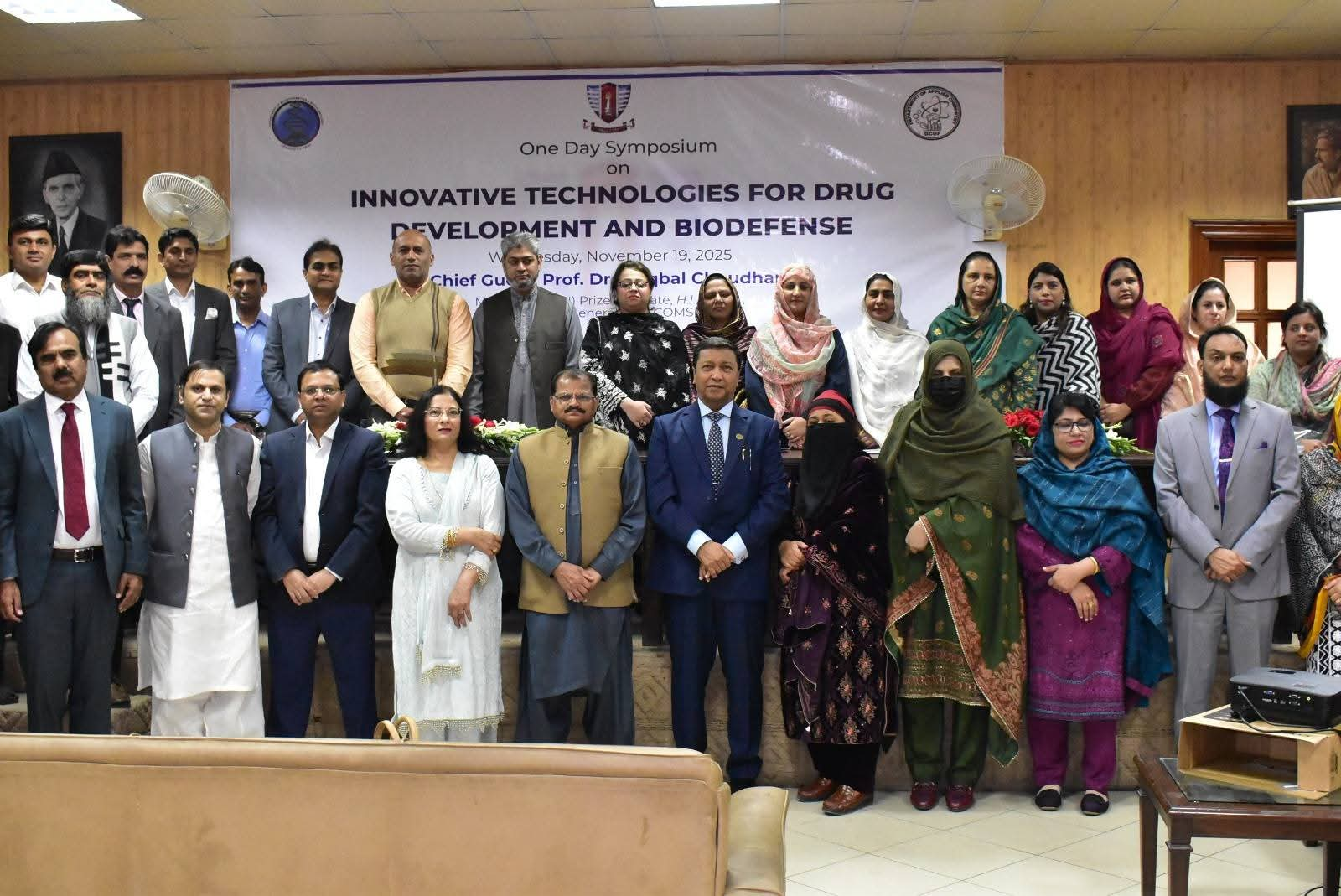Symposium Highlights Advances in Drug Development and Biodefense Technologies at GC University Faisalabad.

A national symposium titled “Innovative Technologies for Drug Development and Biodefense” was held at the Government College University Faisalabad, bringing together leading scientists, researchers, and postgraduate scholars from across Pakistan.
The event provided a comprehensive platform for discussing emerging biomedical innovations and the growing challenges associated with modern biodefense, reflecting the country’s increasing focus on strengthening research capacity in critical scientific domains.
Prof. Dr. Muhammad Iqbal Choudhary attended the symposium as the Chief Guest. Dr. Choudhary, an internationally renowned medicinal chemist and the Coordinator General of OIC COMSTECH, has made landmark contributions to natural product chemistry and the development of therapeutic molecules. He is a recipient of several top national and international honors, including the Mustafa (PBUH) Prize, Hilal-i-Imtiaz (HI), Sitara-i-Imtiaz (SI), and Tamgha-i-Imtiaz (TI).
In his address, Dr. Choudhary emphasized the urgent need for interdisciplinary collaboration and innovation-driven research to strengthen global health security and biodefense capacities.
Dr. Shahid Mansoor, former Director of NIBGE delivered an insightful address on the future of plant genomics, biosafety, and biotechnology in national biosecurity planning.
Prof. Dr. Abdul Haque, Rector/Director of Akhuwat FIRST University Faisalabad, discussed innovations in molecular diagnostics and their relevance to biodefense. Dr. Haque stressed the importance of rapid and accurate diagnostic technologies in preventing biological threats
Prof. Dr. Amjad Hameed, Deputy Chief Scientist at NIAB, delivered a presentation on molecular screening and biochemistry-based therapeutics.
Incharge Dean Faculty of physical sciences Prof Dr Kaleem Khan Khosa also addressed the symposium, appreciating the initiative and encouraging researchers to pursue innovation-driven scientific inquiry.
The symposium was organized by Dr. Tahsin Gulzar Department of Applied Chemistry and Dr. Asma Haque Department of Bioinformatics and Biotechnology.
The symposium concluded with a collective commitment to strengthen national and international research collaboration, enhance scientific capabilities, and pursue innovative strategies to address evolving biomedical and biodefense challenges.














